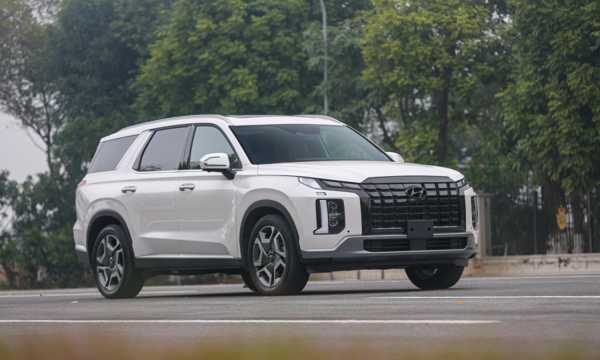Property management software (PMS) represents a sophisticated and indispensable tool heavily employed by businesses to optimize and manage their everyday operations more efficiently. These software solutions facilitate a wide variety of tasks, including but not limited to organization, scheduling, account management, occupancy tracking, and a plethora of other activities crucial to smooth business operations.

The rising trend of adopting such systems is largely due to a significant transition from relying on multitasking human employees—which is often fraught with the potential for errors—toward embracing automated solutions. These solutions not only ensure better accuracy in documenting and utilizing information but also optimize how tasks are managed. Essentially, the most effective property management software serves as a centralized online platform aimed at automating the workforce and substantially improving operational efficiencies across various business models.
Guidelines for Choosing the Right Property Management Software
Choosing an optimal property management software solution involves evaluating several factors that ensure the chosen solution aligns seamlessly with the bespoke needs of a business.
Determine Specific Needs
Prior to investing considerable resources into acquiring, installing, and integrating property management software, a company must pinpoint its specific needs accurately. This involves posing an array of targeted questions to uncover what capabilities are essential in the software solution. Critical considerations include evaluating the necessity for features such as lease and rent management, financial tracking, and maintenance oversight. Furthermore, it important for businesses to assess whether they are dealing with residential or commercial properties, as well as their scalability requirements. Once a company identifies a software that ticks all these significant boxes, it can invest with assurance, knowing that it is equipped to effectively manage the broad spectrum of operational tasks.
Assess Data Security and Privacy Protocols
Incorporating property management software into a business operations is largely driven by the aim to amplify data security. These tools provide a level of data protection significantly superior to what can be offered by human workers. Given the regular handling of sensitive data such as maintenance records, tenant information, and financial documentation within property management, robust security protocols are crucial. These protocols should involve rigorous encryption and consistent data backups to mitigate risks such as breaches or loss. Furthermore, the software should be equipped with multi-factor authentication alongside context-specific data protection measures designed to safeguard business, as well as client-specific information. Top-tier property management software offerings provide excellent data protection capabilities with strict access controls.
Focus on Quick Invoice Generation and Efficient Bill Collection
In industries like hospitality, where client turnover is rapid and frequent, the advantages of property management software tools are particularly evident. Receptionists and administrative staff are routinely tasked with managing processes such as bill collection, information verification, and invoice preparation—tasks susceptible to human error or delay if handled manually. However, property management software can effectively manage these functions. When assessing software choices, it is crucial to ensure the system is designed with a straightforward user interface to facilitate easy invoice generation and efficient bill collection. If the interface is too complex, consequently hindering process speed or accuracy, businesses might need to reevaluate the software suitability with their operational needs before committing to a purchase decision.
Consider Implementation Speed and User-Friendly Attributes
Businesses gravitate toward software tools that integrate swiftly, becoming operational in the fastest possible timeframe. A drawn-out installation and integration process, especially when coordinating with existing systems and interfaces, can be quite cumbersome. Therefore, preferred software solutions should feature an intuitive interface promoting smooth operations across various departments, including the front desk, housekeeping, and others. When property management software operates seamlessly, it can substantially enhance productivity across a business.
Key Attributes of Property Management Software Tools
The extensive feature set encapsulated within property management software (PMS) tools makes them invaluable resources across various industry sectors.
Managing Rental Payments
An exemplary feature of property management software is its robust capability to meticulously trace and manage rental payment processes. Through these software solutions, businesses and property owners gain an effective mechanism to oversee imminent rent obligations, including both receivables and payables, and accurately track the precise dues associated with clients or tenants.
Boosting Customer Service
PMS tools are instrumental in allowing businesses to effectively track critical dates such as lease renewals and rent payment deadlines. Such functionalities empower businesses to manage communications and interactions with their clients efficiently, thereby enhancing customer service quality.
Financial Management and Bookkeeping
Thriving in the competitive marketplace hinges on sound financial management, and property management systems are fundamental in consolidating and simplifying these accounting tasks. They enable businesses to maintain precise financial records, generate ledgers, compose balance sheets, and conduct a multitude of financial operations with increased accuracy and ease.
Cost of Developing Customized Commercial Property Management Software
The development cost for customized property management software typically ranges from $40,000 to $250,000, subject to variations dependent on several influencing factors. These factors include the user interface and user experience (UI/UX) design, desired features, the technology or framework being utilized, as well as the geographical location of the development firm.
Premier Property Management Software Tools
Across various industries, an array of tools is prevalently used, including Rent Manager, Guesty, Rentec Direct, PayHOA, TenantCloud, and Buildium. These tools support several functions encompassing short-term rental management, smooth rent collection, tenant data oversight, and comprehensive property maintenance management.





